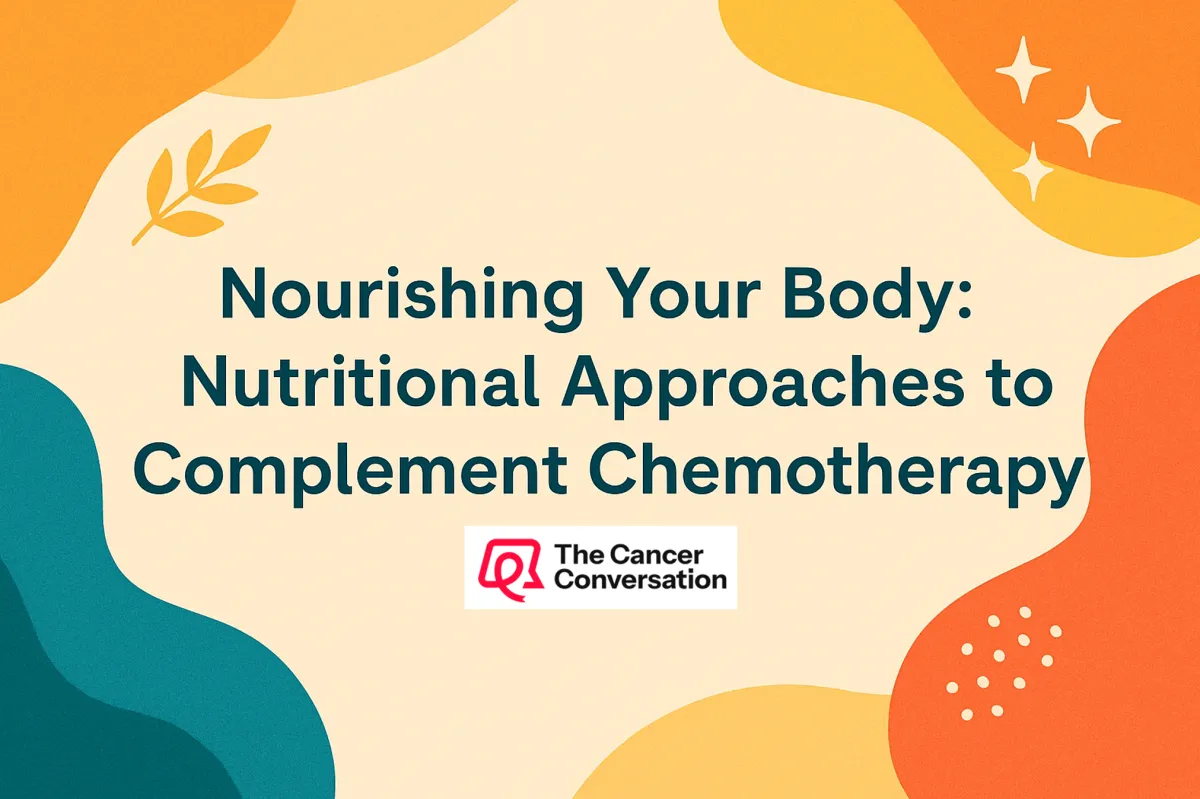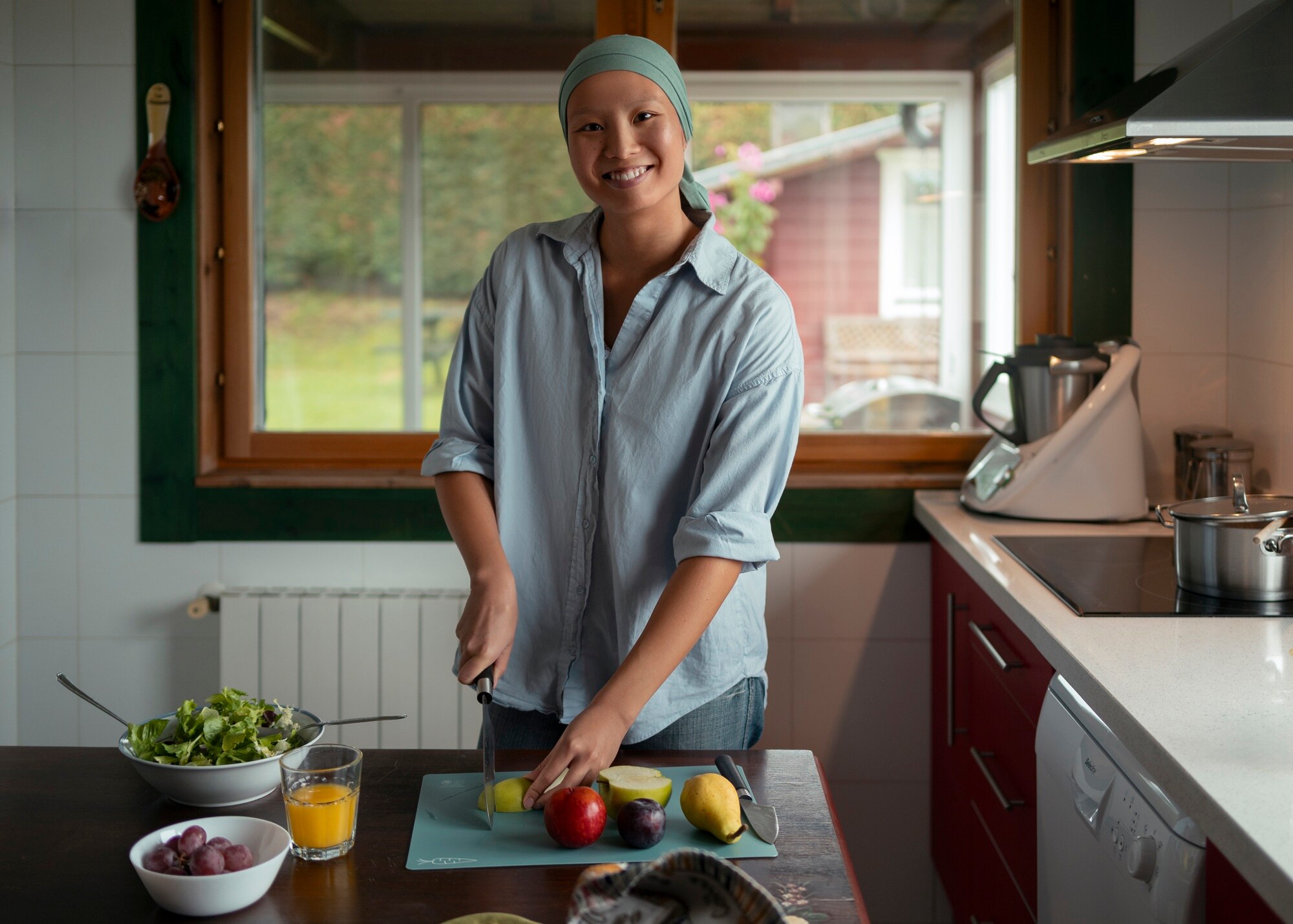
Nourishing Your Body: Nutritional Approaches to Complement Chemotherapy
Facing a cancer diagnosis and undergoing chemotherapy can be an overwhelming experience, but understanding the role of nutrition throughout this journey can make a significant difference. Nourishing your body with the right foods can help manage chemotherapy side effects, support recovery, and enhance overall resilience. Our compassionate approach to chemotherapy nutrition focuses on integrating whole foods that are both comforting and healing. By prioritizing holistic cancer care, you can empower yourself to take an active role in your wellness. Let us guide you through practical and personalized nutritional approaches that have helped many on their path to recovery. 🌟 [https://www.hopkinsmedicine.org/health/conditions-and-diseases/cancer/cancer-diet-foods-to-add-and-avoid-during-cancer-treatment].
Holistic Cancer Care Basics

In the realm of holistic cancer care, understanding the synergy between treatment and nutrition is crucial. A thoughtful dietary approach can significantly enhance the efficacy of chemotherapy, improve patient well-being, and support recovery. Let's explore the core elements of chemotherapy nutrition and the importance of integrating it into cancer treatment.
Importance of Nutrition in Treatment
Nutrition plays a pivotal role in supporting individuals through chemotherapy. Vital nutrients help the body repair and recover, providing the energy necessary for resilience.
Strengthens Immunity: Eating a balanced diet boosts the immune system, potentially reducing infection risks often associated with chemotherapy.
Manages Weight: Maintaining a healthy weight is vital, as unexpected weight loss can affect treatment outcomes.
Enhances Energy Levels: Proper nutrition can combat fatigue and maintain energy, essential during treatment.
Studies highlight how personalized nutrition plans can lead to better treatment adherence and improved quality of life. Exploring resources like UCSF Health can offer guidance on crafting an effective nutritional strategy.
Key Principles of Chemotherapy Nutrition
Chemotherapy nutrition principles focus on maintaining overall health during treatment. Incorporating specific dietary practices can alleviate side effects and promote recovery.
Hydration is Key: Drinking adequate fluids helps manage side effects like nausea and vomiting.
Balanced Diet: Include a variety of foods rich in vitamins, minerals, and proteins.
Flexibility: Adapt your diet as needed based on your body's response to treatment.
Effective strategies include small, frequent meals to maintain energy levels and ensure nutrient intake. The National Cancer Institute provides in-depth insights into dietary adjustments for chemotherapy patients.
Nutritional Approaches for Chemotherapy

Managing nutrition during chemotherapy involves addressing side effects and supporting recovery through targeted dietary choices. Implementing these nutritional strategies can make a significant difference in treatment experiences and outcomes.
Managing Chemotherapy Side Effects
Chemotherapy can lead to various side effects, from nausea to fatigue. Specific nutritional approaches can help manage these challenges effectively.
Soft, Mild Foods: opt for foods that are easy on the stomach, such as bananas or rice, to combat nausea.
Ginger and Peppermint: These can help alleviate nausea and improve digestive comfort.
High-Calorie Snacks: Useful for maintaining energy levels during periods of low appetite.
Research underscores the importance of personalized nutritional care plans. The Cancer Support Community offers practical tips for managing side effects through diet.
Foods to Support Cancer Recovery
Post-chemotherapy recovery is supported by a nutrient-rich diet. Specific foods can promote healing and restore strength.
Leafy Greens: Rich in vitamins essential for recovery.
Lean Proteins: Such as chicken or tofu, support muscle repair and maintenance.
Antioxidant-Rich Foods: Berries and nuts can help reduce oxidative stress.
A balanced diet promotes recovery, enhances energy, and supports overall well-being. Refer to PubMed Central for comprehensive studies on the impact of diet on cancer recovery.
Mind-Body Wellness and Diet
Integrating a mindful dietary approach can enhance both physical and mental well-being during cancer treatment. Emphasizing whole foods and sharing real-life success stories can inspire and empower those on this journey.
Integrating Whole Foods for Healing
Whole foods play a vital role in healing. Their natural nutrients support the body without added chemicals.
Fresh Fruits and Vegetables: Provide essential vitamins and minerals.
Whole Grains: Like quinoa and brown rice, offer fiber and energy.
Healthy Fats: Avocados and olive oil support brain health and energy.
Including whole foods in your diet aids digestion and reduces treatment-related stress. Visit UCSF Health for practical advice on integrating whole foods.
Personal Success Stories in Cancer Support
Real-world experiences reflect the power of nutrition in cancer care. Patients who have adopted nutritional strategies often report better treatment outcomes.
Anna's Journey: Embraced a plant-based diet, leading to improved energy and recovery.
John's Experience: Focused on hydration and whole foods, reducing his chemotherapy side effects.
Elena's Path: Integrated mindfulness with nutrition, enhancing her resilience and mental well-being.
These stories illustrate the transformative impact of personalized nutrition plans. Explore more inspiring stories and expert guidance at Cancer Support Community. 🌟








